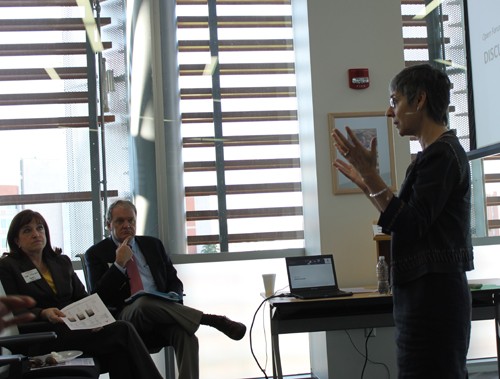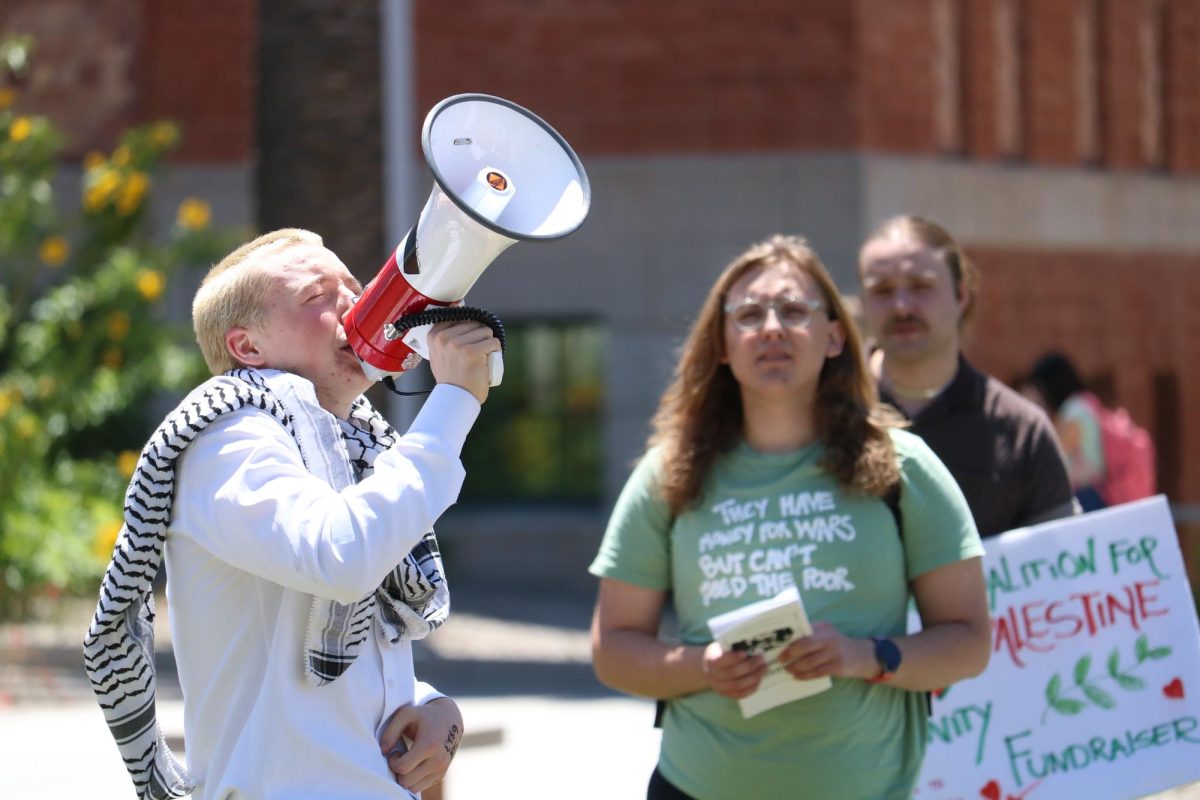The recession has not only affected students’ bank accounts, but also their social relationships and well-being, a recent study by the UA School of Family and Consumer Sciences has reported.
Community leaders gathered yesterday to discuss the findings of the Arizona Pathways to Life Success for University Students study, which surveyed over 2,000 freshmen in their spring semester of 2008 about their financial attitudes and behaviors. These students became known as the “”APLUS”” students. Of the original students, 748 students were surveyed again this spring, their sophomore year, to illustrate the impact of the current recession on students, researchers said.
The students showed a 60 percent increase in credit card debt and an 86 percent increase in student loans from their freshman to sophomore year, said Joyce Serido, assistant research scientist for the School of Family and Consumer Sciences and the project manager and co-principle investigator for the study.
With the increase of financial pressure, Serido said that students reported a decrease in their psychological, physical and academic well-being.
In particular, students showed a significant decrease in the quality of their relationships with friends, Serido said.
“”Their relationships with their friends dramatically decreased, and based on their comments, a lot of them don’t have time to socialize,”” she said. “”They don’t have the money to socialize.””
Extra financial stress can force students to not only cut back on social activities, but also basic living expenses, which can affect their academic performance, said Dr. Marian Binder, director of UA Counseling and Psychological Services.
“”They have to curtail their purchasing of books. They have to curtail their purchasing of food, and in those ways for students who are impacted at that level, it can certainly have an impact on their academic performance, both in terms of not being as well rested or having as good nutrition as they should for optimal focus, and also in terms of not having all the materials they might best have to be prepared for school,”” she said. “”If you can’t afford to buy all your textbooks, it’s obviously going to impact your preparedness for school.””
The students also reported that their academics were affected by their financial problems.
“”It is extremely difficult to maintain a high GPA and volunteer hours to get into special majors while also having to work just to have enough money to eat,”” one student said.
The Arizona Pathways to Life Success for University Students study found that students using riskier strategies to cope with the recession, like reducing number of classes or putting off healthcare and dental care expenses, increased by 78 percent in one year.
The Counseling and Psychological Services office has experienced the increase in financial pressure among students firsthand, Binder said.
“”I do think that we have seen an increase in people talking about financial stress as a part of the picture that they’re dealing with,”” she said. “”Certainly finances are always a problem with students, but the things we’ve seen a little more of are students … reporting that their parents are unable to help them out as much as they used to or the students themselves are having a difficult time finding a job.””
The recession is not just affecting students’ well-being, but also their access to resources on campus, Binder said.
“”It’s difficult, because the recession has also impacted the university budget. So at the same time as students don’t have as many resources, we also don’t have as many resources,”” she said. “”It’s a catch-22, because we can’t provide services if we can’t hire staff.””
Arizona state Sen. Debbie McCune Davis, who attended the Arizona Pathways to Life Success for University Students forum, said that she intended to use the data from the study to prevent tuition increases.
“”The data you have here is a real clear indicator that when we raise tuition and when we change class schedules, the stress goes up with students, and they make short-term decisions that have a significant impact on their long-term well-being,”” she said. “”So I appreciate this data very much, and I’ll put it to use as those conversations continue.””









